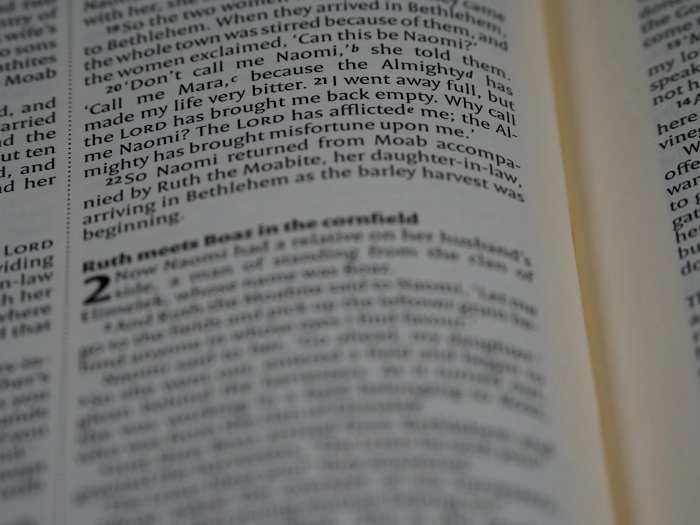Christ, in the book of Ruth

The book of Ruth, nestled within the historical books of the Old Testament, provides a captivating narrative rich with themes of loyalty, redemption, and divine providence. While the direct portrayal of Christ may not be overt as in the New Testament, the book of Ruth offers profound insights and foreshadowings that echo elements of Christ's character and mission.
At its core, the book revolves around the story of Ruth, a Moabite woman, who chooses to remain loyal to her Israelite mother-in-law, Naomi, even after the death of their husbands. Ruth's declaration of commitment to Naomi—"Where you go, I will go; where you lodge, I will lodge; your people shall be my people, and your God my God"—illustrates an extraordinary level of devotion and selflessness. This loyalty, reminiscent of Christ's call for discipleship and self-sacrifice, sets the stage for the unfolding narrative.
Central to the story is the theme of redemption, embodied in the figure of Boaz, a wealthy kinsman of Naomi's deceased husband. Boaz acts as a redeemer for Ruth and Naomi, fulfilling the role of a guardian-redeemer by marrying Ruth and restoring their family's inheritance and lineage. This act of redemption mirrors Christ's role as the ultimate redeemer, who offers salvation and restoration to humanity through his sacrificial death and resurrection.
Furthermore, the genealogy presented at the end of the book, tracing the lineage of King David from Ruth and Boaz, carries significant implications. David, the greatest king of Israel, is a foreshadowing of the Messiah, Jesus Christ, who is often referred to as the "Son of David" in the New Testament. Thus, Ruth's inclusion in the lineage of David underscores her integral role in the lineage of Christ, highlighting the importance of her story in the broader narrative of salvation history.
Moreover, the book of Ruth emphasizes the theme of divine providence, illustrating how God works behind the scenes to bring about his purposes. From Ruth's chance encounter with Boaz in the field to Naomi's recognition of God's hand in their circumstances, the narrative underscores the sovereignty and guidance of God in the lives of his people. This divine providence echoes the New Testament portrayal of Christ as the embodiment of God's plan for salvation, orchestrating events to fulfill the prophecies and promises of scripture.
In conclusion, while the book of Ruth may not explicitly portray Christ in the same manner as the New Testament, it nonetheless offers profound insights and foreshadowings that resonate with Christ's character and mission. Through themes of loyalty, redemption, and divine providence, the book of Ruth illuminates timeless truths about God's faithfulness and the unfolding of his redemptive plan. As such, Ruth's story serves as a poignant reminder of God's grace and provision, ultimately pointing forward to the ultimate redeemer, Jesus Christ.